
‘Substantial damage’ to Ukraine’s power grid after missile attack
Annexed Ukrainian regions to be put on Moscow time
From CNN’s Anna Chernova
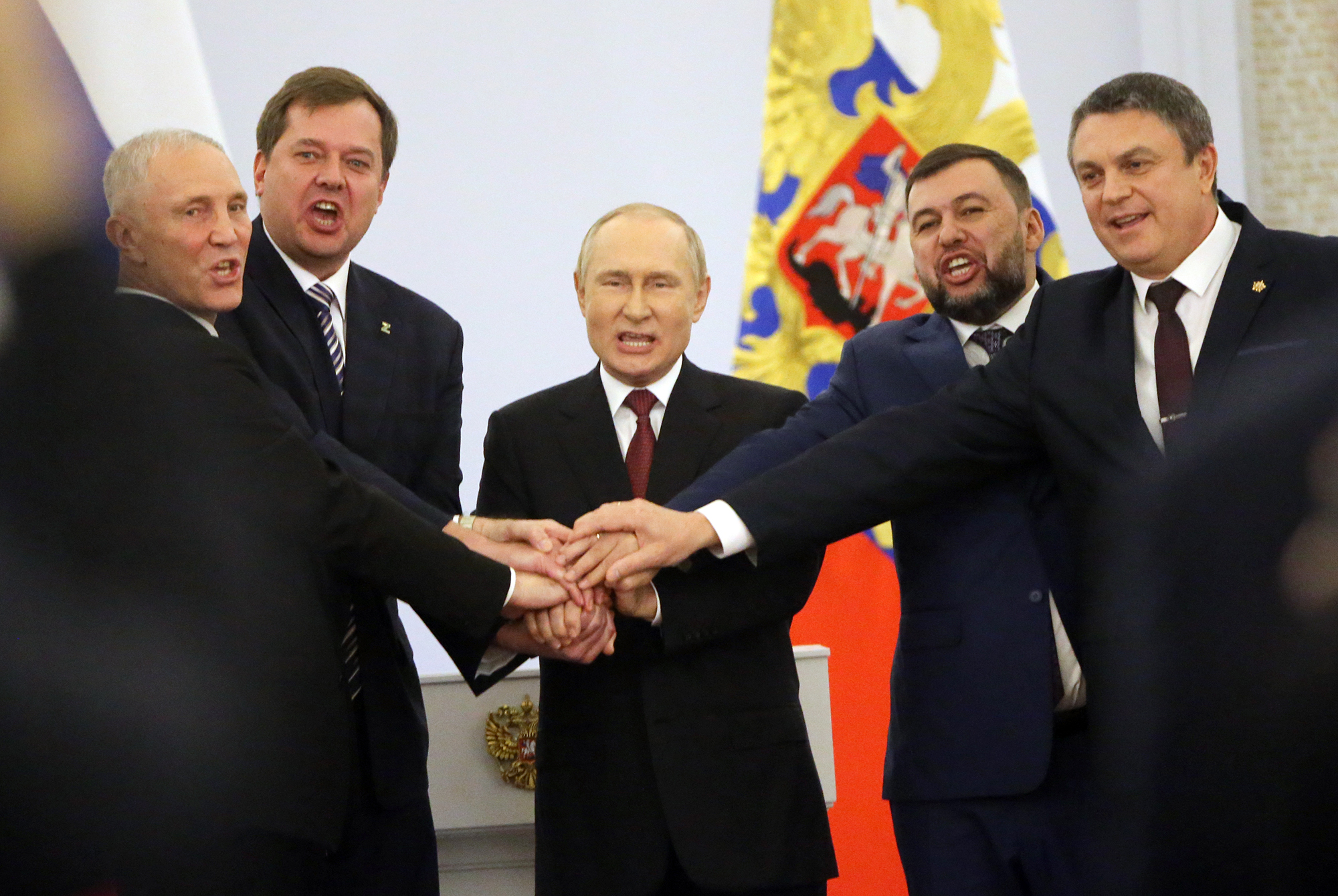
The occupied parts of four Ukrainian regions which Russia declared it had annexed in September will be ordered to use Moscow time, according to a post on the Ministry of Industry and Trade’s Telegram channel.
The Donetsk, Luhansk, Kherson and Zaporizhzhia regions will become part of Russia’s second time zone. “A draft law… has already been submitted to the government,” the post read.
How did we get here? In September, President Vladimir Putin announced Russia would seize of nearly a fifth of Ukraine, declaring that the millions of people living there would be Russian citizens “forever.”
Under the annexation process, which is illegal under international law, Moscow said it would recognize four Ukrainian regions as Russian territory: Luhansk and Donetsk — home to two Russian-backed breakaway republics where fighting has been ongoing since 2014 — as well as Kherson and Zaporizhzhia, much of which have been occupied by Russian forces since shortly after the invasion began.
Putin’s announcement followed so-called referendums in the regions that were universally dismissed as “shams” by Ukraine and Western nations.
Kremlin says Washington “demonizing” Russian private mercenary Wagner group
From CNN’s Anna Chernova
The Kremlin said Friday that Washington has been “demonizing” the Russian private mercenary organization Wagner group for years, following the US Treasury’s decision to designate the group as a significant transnational criminal organization.
“Yesterday was not the first time we heard such statements from Washington demonizing PMC (Private Military Contractor) Wagner. This has been going on for many years,” said Kremlin spokesperson Dmitry Peskov.
“Such statements from Washington are unfounded. We never see any intelligible arguments,” he added.
Here’s some background: The US Treasury Department on Thursday designated the Wagner Group, which is heavily involved in the war in Ukraine, as a significant transnational criminal organization, and imposed a slew of sanctions on a transnational network that supports it.
The Treasury Department also imposed sanctions for its illicit activities in the Central African Republic, saying in its statement “the Wagner Group has also meddled and destabilized countries in Africa, committing widespread human rights abuses and extorting natural resources from their people.”
Peskov said Friday there was “no evidence or confirmation” provided to the public about claims of the group’s involvement in the Central African Republic.
The US Department of State concurrently announced a number of sanctions meant to “target a range of Wagner’s key infrastructure — including an aviation firm used by Wagner, a Wagner propaganda organization, and Wagner front companies,” according to US Secretary of State Antony Blinken.
Read more:
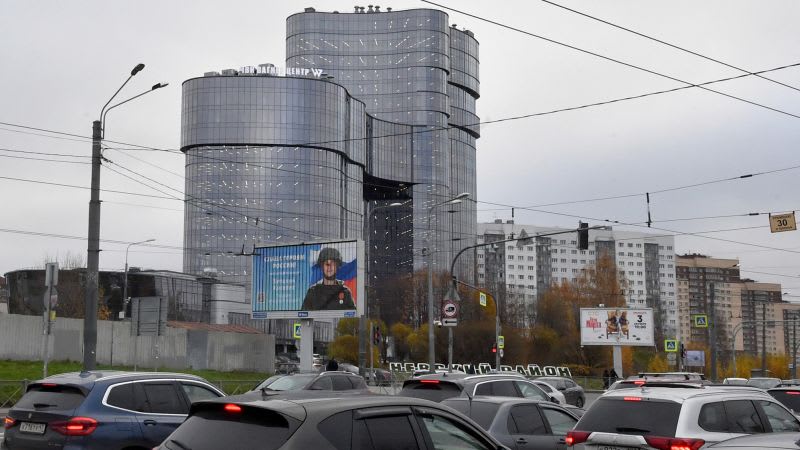
EU accuses Russia of “indiscriminate attacks” against Ukraine, taking war to a “different stage”
From CNN’s Duarte Mendonca
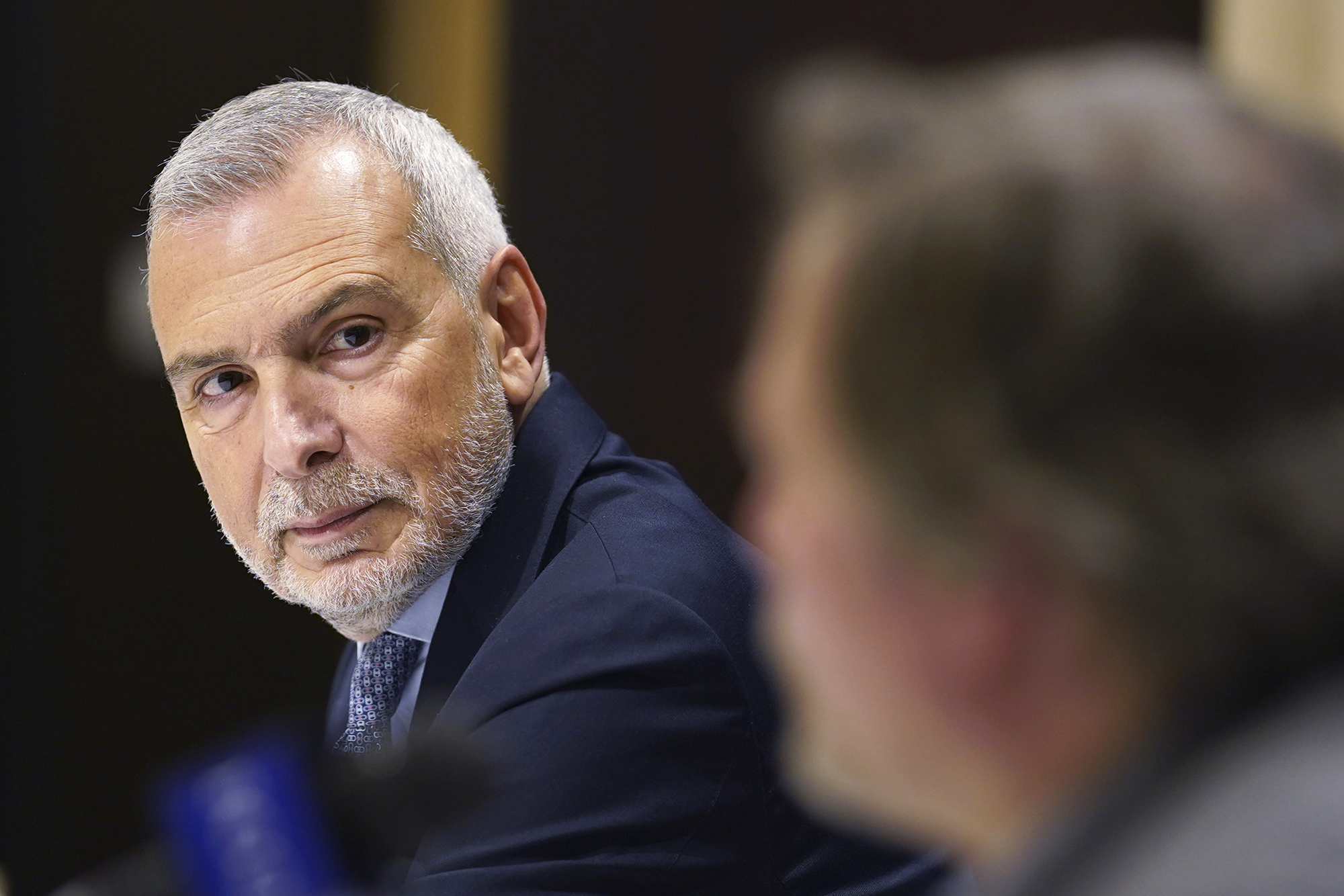
A senior European Union official accused Russia on Friday of taking its war against Ukraine to a “different stage” by taking aim at civilians and non-military targets, prompting Germany and the US to supply military equipment to Ukraine in order for the country to better defend themselves.
Speaking at a press conference in Tokyo, the secretary general of the European Union’s European External Action Service, Stefano Sannino, said Russia had “moved from a concept of special operation to a concept now of a war against NATO and the West.”
“I think that this latest development in terms of armed supply is just an evolution of the situation and of the way Russia started moving the war into a different stage,” Sannino, said, adding that Putin was launching “indiscriminate attacks against civilians and against cities.”
The EU’s latest actions are aimed at “just giving the possibility of saving lives and allowing the Ukrainians to defend (themselves) from these barbaric attacks,” he added.
Tanks promised: The leaders of the United States and Germany each announced Wednesday they will send contingents of tanks to Ukraine, reversing their longstanding trepidation at providing Kyiv with offensive armored vehicles and unleashing powerful new tools in Ukraine’s efforts to retake territory seized by Russia.
The announcement by German Chancellor Olaf Scholz that he will send Leopard 2 tanks was coupled with an announcement from US President Joe Biden that he was providing 31 M1 Abrams tanks to Ukraine, reversing the administration’s longstanding resistance to requests from Kyiv for the highly sophisticated but maintenance-heavy vehicles.
The dual announcements made for a landmark moment that followed weeks of intense pressure on Berlin from some of its NATO allies. The decisions were the result of prolonged diplomacy between Germany, the United States and other European allies, and come as Ukrainian President Volodymyr Zelensky prepares for a new Russian offensive this spring.
“Substantial damage” to Ukraine’s power grid after missile attack
From CNN’s Jo Shelley in London and Maria Kostenko in Kyiv
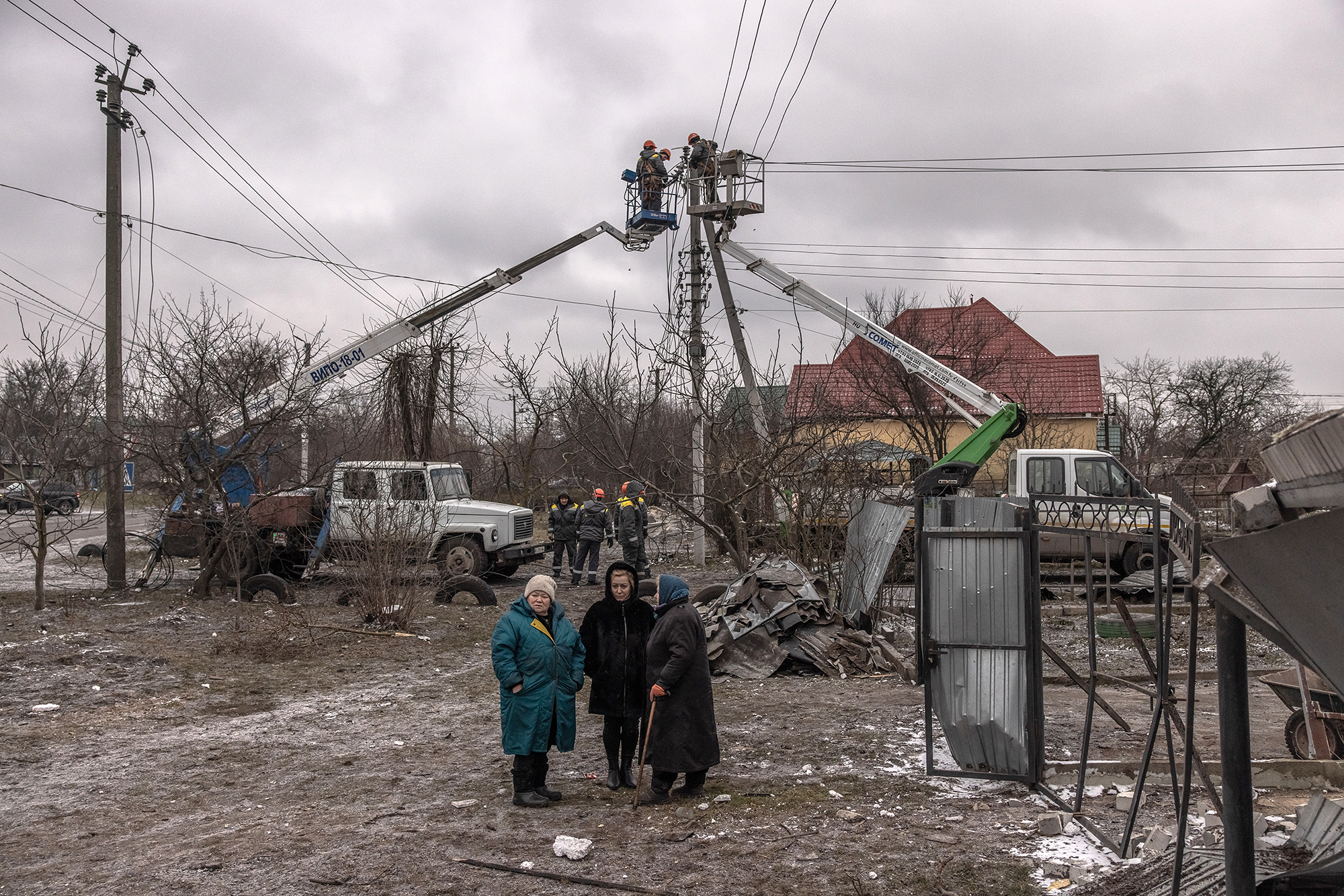
Ukrenergo, Ukraine’s state-run energy operator, has said Thursday���s Russian missile strikes resulted in “substantial damage” to the power grid.
“The recovery of the power grid becomes harder, and lasts longer, after every Russian attack,” the company said in a statement posted to Facebook.
It noted that Ukraine had now suffered 13 missile attacks and 15 drone attacks on its energy facilities.
Some background: Russia launched 70 missiles at Ukraine on Thursday, 47 of which were intercepted, the Ukrainian Armed Forces said in its daily operational update on Facebook.
Moscow’s forces also carried out 44 airstrikes, including 18 using Iranian-made Shahed-136 drones. All self-detonating drones were shot down, the Ukrainian Armed Forces said.
Earlier, Ukrainian Prime Minister Denys Shmyhal said the main targets were energy facilities.
Ukraine says it shot down most of the missiles and drones launched by Russia on Thursday
From CNN’s Maria Kostenko
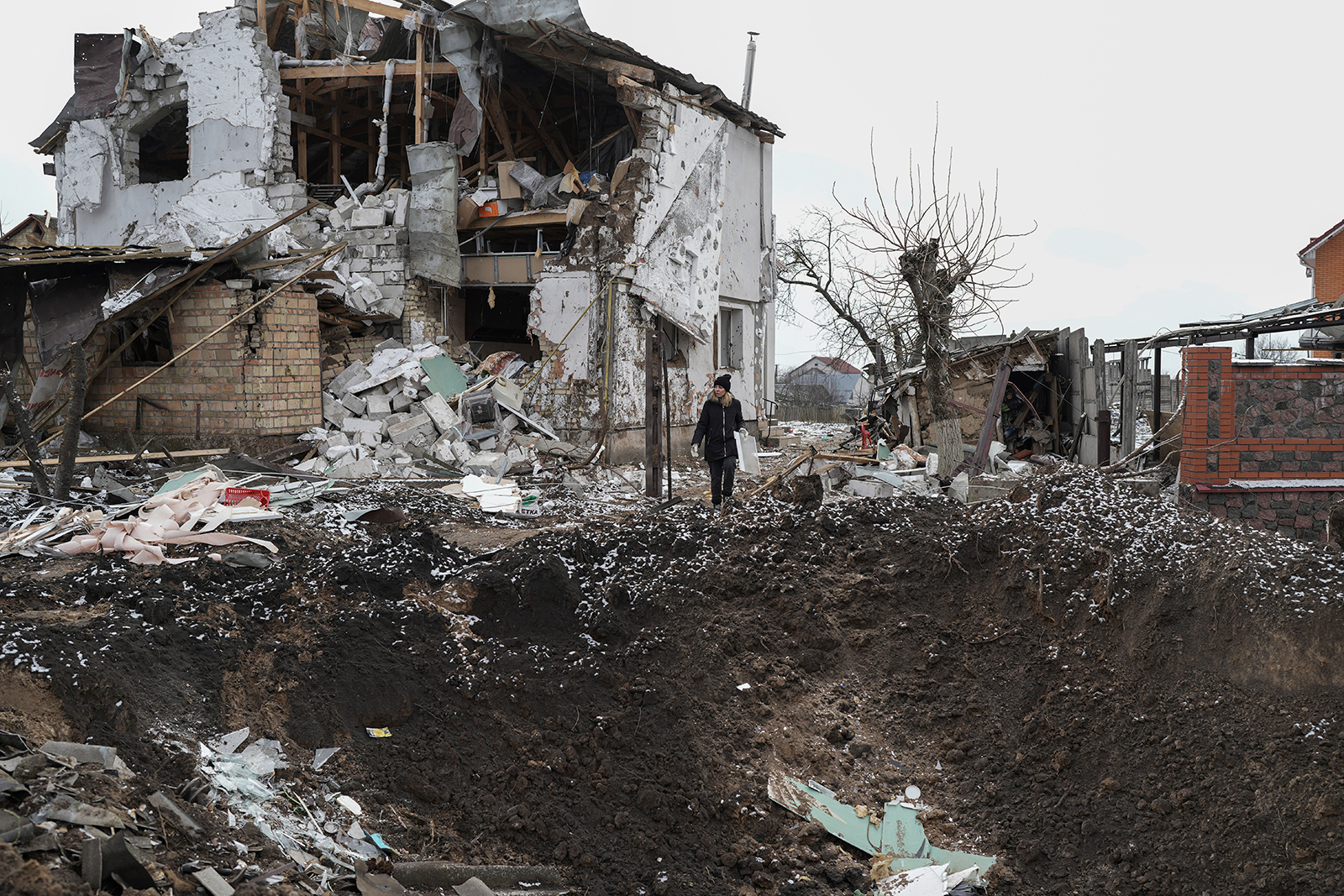
Russia launched 70 missiles at Ukraine on Thursday, 47 of which were intercepted, the Ukrainian Armed Forces said in its daily operational update on Facebook.
Moscow’s forces also carried out 44 airstrikes, including 18 using Iranian-made Shahed-136 drones. All self-detonating drones were shot down, the Ukrainian Armed Forces said.
Earlier, Ukrainian Prime Minister Denys Shmyhal said the main targets were energy facilities.
At least 11 people were killed and another 11 were injured across Ukraine, the country’s State Emergency Services reported Thursday. Meanwhile, emergency power outages were imposed in some regions.
The new round of missiles fired toward Kyiv and other Ukrainian cities came just hours after Germany and the United States announced plans to send modern tanks to the country.
Djokovic’s father responds to criticism after posing with fan wearing pro-Russia “Z” symbol
From CNN’s Angus Watson in Sydney
The father of tennis star Novak Djokovic has responded to criticism after a video emerged on Wednesday of him at the Australian Open posing with fans holding Russia flags, voicing his support for Russia.
In a statement Friday that stopped short of an apology, Srdjan Djokovic said he was in Melbourne “to support my son only,” and “had no intention of causing such headlines or disruption.”
“I was outside with Novak’s fans as I have done after all of my son’s matches to celebrate his wins and take pictures with them. I had no intention of being caught up in this,” he said.
“My family has lived through the horror of war, and we wish only for peace.”
He added that he would watch his son’s semifinal match against US star Tommy Paul from home on Friday “so there is no disruption … for my son or for the other player.”
Novak Djokovic will not be commenting on the situation, his management told CNN.
Earlier Friday, Ukraine’s ambassador to Australia had urged the tennis star to state his position on the war following his father’s actions.
“I think for him to dispel the speculation it’s important to make a very strong statement about where he stands on this war,” Ukrainian Ambassador Vasyl Myroshnychenko told CNN.
What the video showed: In a video posted on YouTube by a known Vladimir Putin supporter, Srdjan Djokovic can be seen posing with a fan outside Melbourne’s Rod Laver Arena. The man is holding a Russia flag with Putin’s face on it and wearing a shirt with the “Z” symbol on his shirt, which is viewed as a sign of support for Russia, including its invasion of Ukraine.
Read the full story here.
Analysis: Ukraine’s new tanks won’t be the instant game-changer some expect
Analysis from CNN’s Brad Lendon
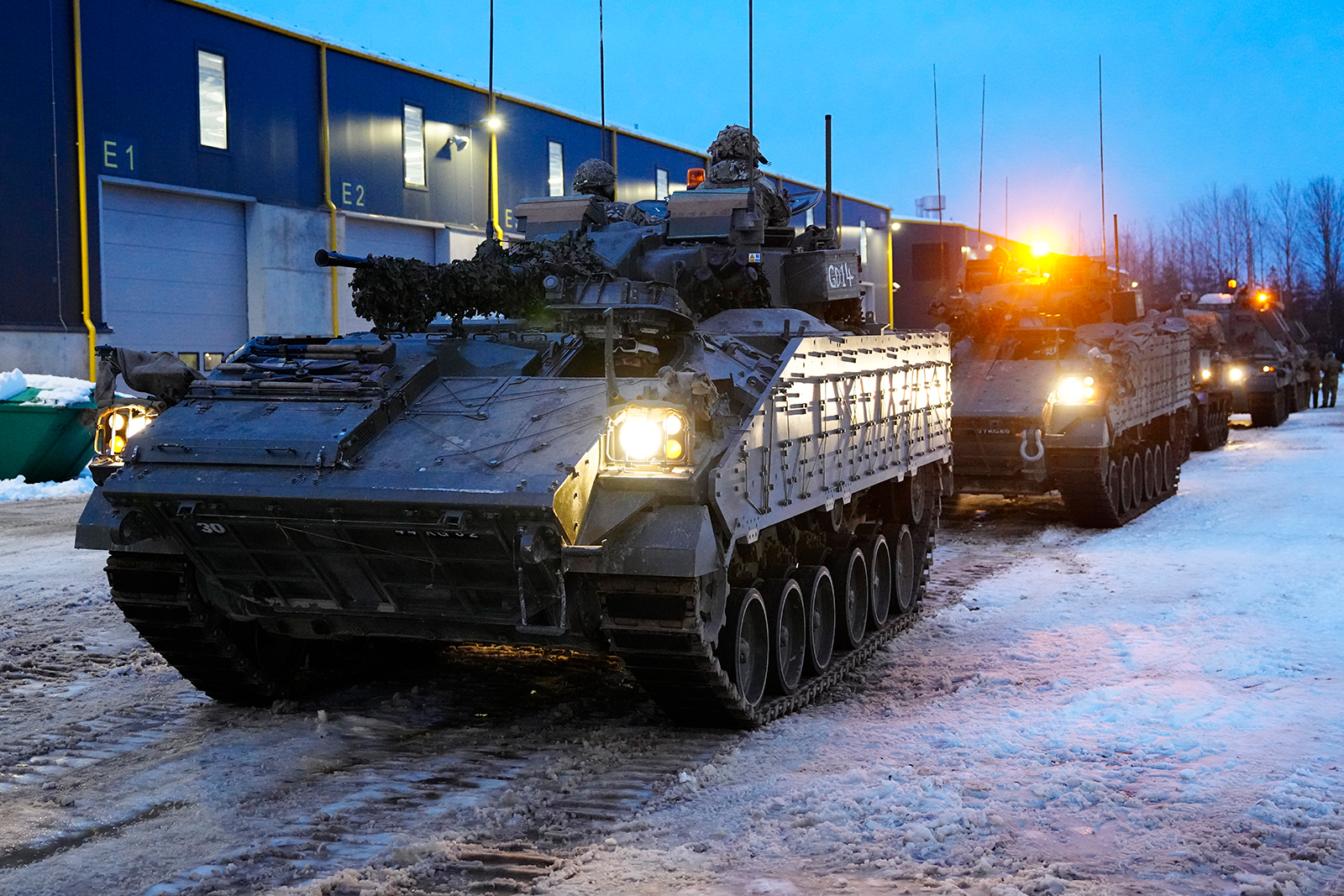
Those hoping that main battle tanks donated by NATO allies to Ukraine will have an immediate impact in its war with Russia may have to adjust their expectations.
After confirming it will receive deliveries of the American M-1 Abrams, German Leopards and British Challengers, Kyiv is now confronted with the logistical and operational realities of incorporating an assortment of vastly different and complex heavy armor into effective fighting units.
But first, the Ukrainians must factor in the time line for delivery.
Even the most optimistic estimates say it will take months for the tanks to enter the battlefield in numbers to make a big difference, while in the case of Abrams tanks it could be more than a year before Ukraine is able to deploy them.
Deputy Pentagon press secretary Sabrina Singh said Thursday that the United States would provide Ukraine with an advanced version of the Abrams, the M1A2.
The US does not “have these tanks available in excess in our US stocks,” she said, adding it will take “months to transfer” them to Ukraine.
Many analysts say it would make things easier for Ukraine to stick with one kind of tank, and that’s what makes Germany’s decision to allow Leopards into the fight so important.
Modern main battle tanks are complicated pieces of weaponry. Looking formidable and rugged on the outside, much of their effectiveness on the battlefield comes down to sophisticated electronic and computer systems at their core. Those systems find targets and train the tank’s main gun on them.
Maintaining the tanks, repairing them, and supplying the parts necessary requires detailed training all the way from the crews in the vehicles to the logistics trail supporting them, hundreds or maybe thousands of miles from the front lines in eastern Ukraine.
“The tank that they can operate and maintain most effectively will be the right option, which probably means one available in large numbers with less complex systems, which runs on the most accessible fuels and uses readily available ammunition — and that likely means the Leopard 2,” said Blake Herzinger, a nonresident fellow at the American Enterprise Institute.
Read the full analysis here.
Japan imposes new sanctions on Russia over Ukraine invasion
From CNN’s Junko Ogura in Tokyo
Japan on Friday announced additional sanctions against Russia in response to Moscow’s latest actions in Ukraine, banning the export of key strategic goods and freezing the assets of dozens of people.
The sanctions, which mostly take effect Friday, target Russian politicians, military personnel, businessmen, and companies.
They include 14 pro-Moscow figures linked to Russia’s illegal attempts to annex four regions in the south and east of Ukraine.
From Feb. 3, Tokyo will also ban exports to to 49 designated entities in Russia of goods that could be used to strengthen Moscow’s military forces.
Japan’s Ministry of Economy, Trade and Industry said this includes semiconductor equipment and components, robots, generators, explosives, and vaccines.
Ukrainian ambassador to Australia urges Novak Djokovic to state his position on the war
From CNN’s Angus Watson in Sydney
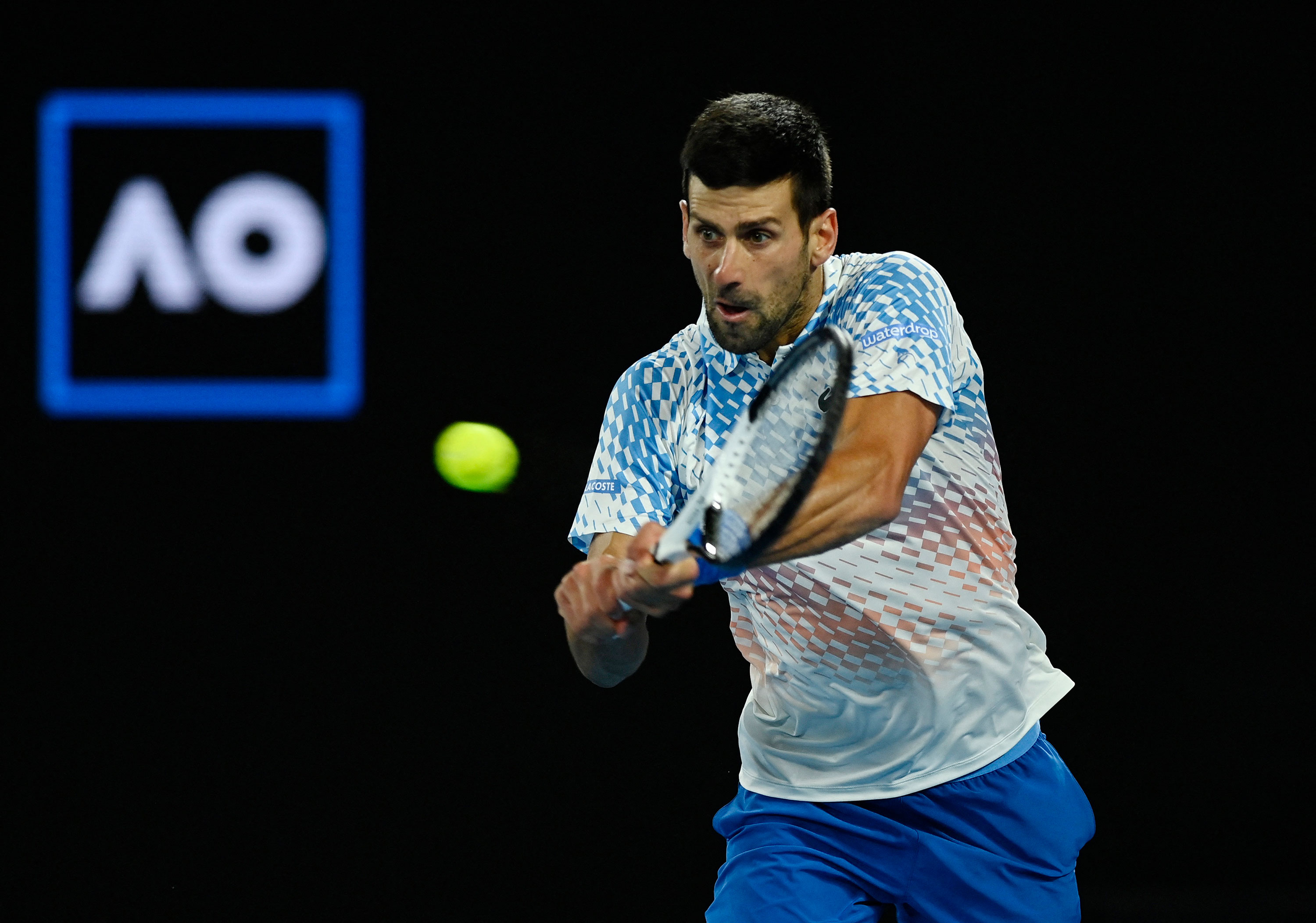
Ukraine’s ambassador to Australia on Friday called on tennis star Novak Djokovic to state his position on Russia’s invasion of Ukraine, after the player’s father was pictured at a demonstration with fans holding Russia flags.
Footage from the Australian Open in Melbourne on Wednesday shows Srdjan Djokovic posing behind a Russian flag superimposed with President Vladimir Putin’s face.
Speaking to CNN Friday, Ukrainian Ambassador to Australia Vasyl Myroshnychenko said the incident amounted to a “provocation” and “shines a negative light on Novak himself as he prepares for his semi-final.”
“I think for him to dispel the speculation it’s important to make a very strong statement about where he stands, and in this war, and I would like to see an apology from Novak Djokovic,” the ambassador said.
“Of course, the son cannot be responsible for the sins of his father, but maybe he has the same opinion as his father. I think the world should know where he stands.”
Tennis Australia told CNN that four people were ejected from the tournament on Wednesday for displaying pro-war imagery.
CNN has reached out to both Srdjan Djokovic and Novak Djokovic for comment.
Read more:
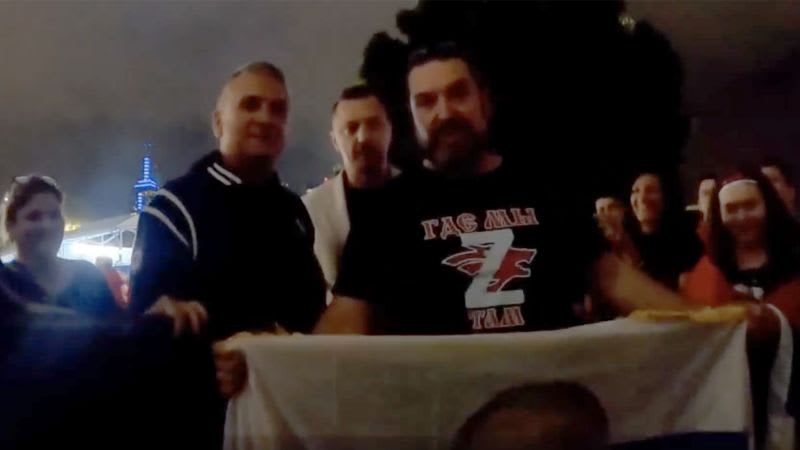
Source: https://www.cnn.com/europe/live-news/russia-ukraine-war-news-1-27-23/index.html















